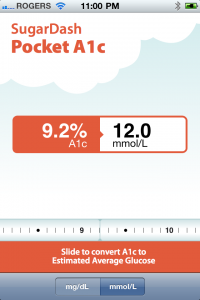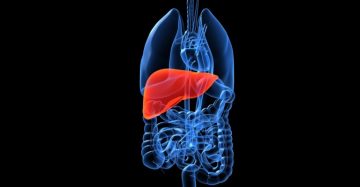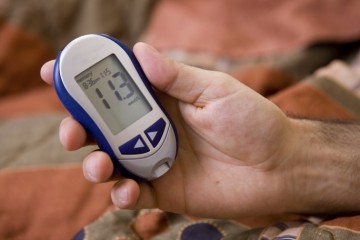By Dr. Steve Wong on December 19, 2011
As 2011 draws to a close, I’d like to take an opportunity to thank all of our readers for their support, suggestions, and encouragement. It’s been a very gratifying experience for all of us involved at This Changed My Practice.
By Dr. Kenneth Madden on December 6, 2011
Every year, one-third of older adults (age greater than 65) experience one or more falls. One therapy with the potential to reduce both falling and fractures is vitamin D supplementation, possibly due to a direct stimulation of vitamin D receptors on muscle tissue.
By Dr. Paul Thiessen on November 22, 2011
Upper respiratory infections are the most common illnesses seen in childhood, and the symptoms are often disruptive for both the child and the whole family.
By Dr. Shirley Sze on November 7, 2011
I now recognize the inherent high risk of successful suicide (10%) in this population and the need to address non-suicidal self injury with the seriousness that it deserves.
By Dr. Judy Allen on October 24, 2011
Prior to working at a Sleep Clinic had failed to ask the most important question when assessing insomnia concerns in patients with or without a primary psychiatric disorder. Before resorting to sedative hypnotic, antidepressant and/or antipsychotic polypharmacy…
By Dr. Sharlene Gill on October 11, 2011
In a recent randomized trial patients with advanced lung cancer who received both chemotherapy and also received care and support from a palliative care team immediately after their diagnosis lived almost three months longer than those who received chemotherapy alone.
By Dr. George Luciuk on September 25, 2011
Nasal woes can cause lots of complications. Most of them start insidiously but can progress steadily. Awareness by the family physician of what “can happen” is very important.
By Dr. Launette Rieb on September 12, 2011
It is worth considering OIPS in the differential diagnosis when pain appears to be spreading, especially when features of allodynia and hyperalgesia are present.
By Dr. Yazdan Mirzanejad on August 29, 2011
By going through guidelines derived over 10 years, there are 5 major evidences that changed my way of managing community acquired pneumonia.
By Dr. Rosemary Basson on August 15, 2011
Although men with repeatedly low serum testosterone levels typically have low sexual desire, no such link has been identified in women.
By Dr. Steve Wong on July 20, 2011
In response to reader requests and the increasing interest in mobile apps, we are launching a series of articles highlighting useful iPhone apps. These will appear approximately once every three months.
By Dr. Eric Yoshida on July 18, 2011
This year, based on the phase III studies published in the New England Journal of Medicine, the FDA approved the new protease inhibitors, telapravir and boceprevir in combination with pegIFN and ribavirin for patients with HCV G1 infections.
By Dr. Ted Steiner on July 4, 2011
Based on recent literature, my current practice is to carefully consider whether PPIs or H2 blockers are truly indicated in inpatients, and to stop them if they are not.
By Dr. Breay Paty on June 20, 2011
Recent studies suggest that the relationship between glucose control (A1C) and cardiovascular disease is more complex than we may have realized.
By Dr. Sarah Finlayson on June 5, 2011
A growing body of knowledge reveals that the majority of cases of high grade serous “ovarian” cancer actually are fallopian tube cancers.
By Dr. Carol-Ann Saari on May 24, 2011
I watched as a functioning youth became more and more psychotic as he smoked large amounts of marijuana every day, and I saw how difficult it was to treat his psychosis even after the marijuana stopped.
By Dr. Peter Black on May 9, 2011
Most of the data on which we base our prostate cancer screening practices is indirect and not definitively linked to the decrease in mortality that has been observed.
By Dr. Devin Harris on April 26, 2011
Thombolysis for acute ischemic stroke is a small component of comprehensive acute stroke therapy. However, there now should be no debate into its effectiveness and the widespread adoption of its use in carefully selected patients should be supported.
By Dr. Dan Bilsker on April 11, 2011
Innovative forms of service delivery have the potential to greatly expand the scope of depression intervention. Series of self-management workbooks designed to teach depressed individuals evidence-based skills for mood management, available for free download from http://www.comh.ca/selfcare/.
By Dr. Brian Bressler on March 28, 2011
Effectively treating the inflammation in patients with Crohn’s disease has now allowed us to treat not just the symptoms associated with Crohn’s disease, but the disease itself.
By Dr. Graeme Wilkins on March 14, 2011
Overt hypothyroidism is seen in 0.3 to 0.5% of the general population and subclinical hypothyroidism (high TSH and normal free T4) is seen in 2-3%. Thyroid antibodies are identified in 5-15% of women.
By Dr. Anne Antrim on January 31, 2011
NICU experience has a profound effect on children and their families. As caregivers, we need to specifically ask about potential issues and offer advocacy for these families in the community and in the schools.
By Dr. Randall White on January 17, 2011
The evidence has become impossible to ignore that people with chronic mental illness are dying from heart attacks and strokes at a higher rate than the general population.
By Dr. Shirley Sze on January 3, 2011
Tobacco kills twice as many people in BC as motor vehicle crashes, alcohol, suicide and homicide combined. Providing a brief intervention of 3 minutes will double the chance of patients quitting.




















Recent Comments